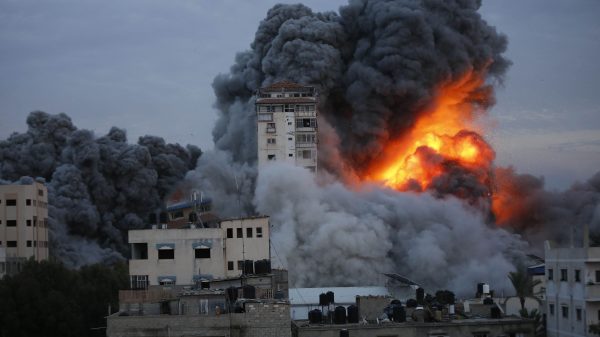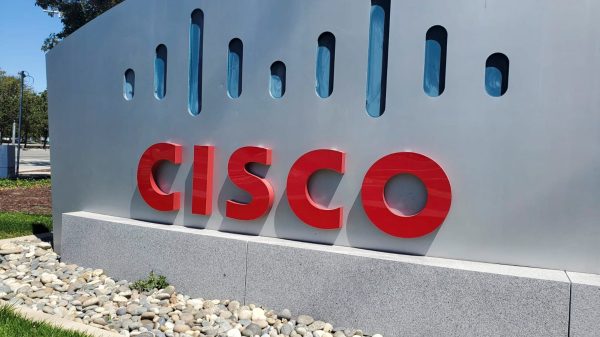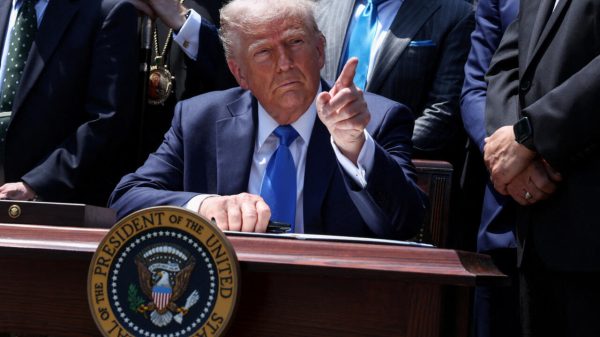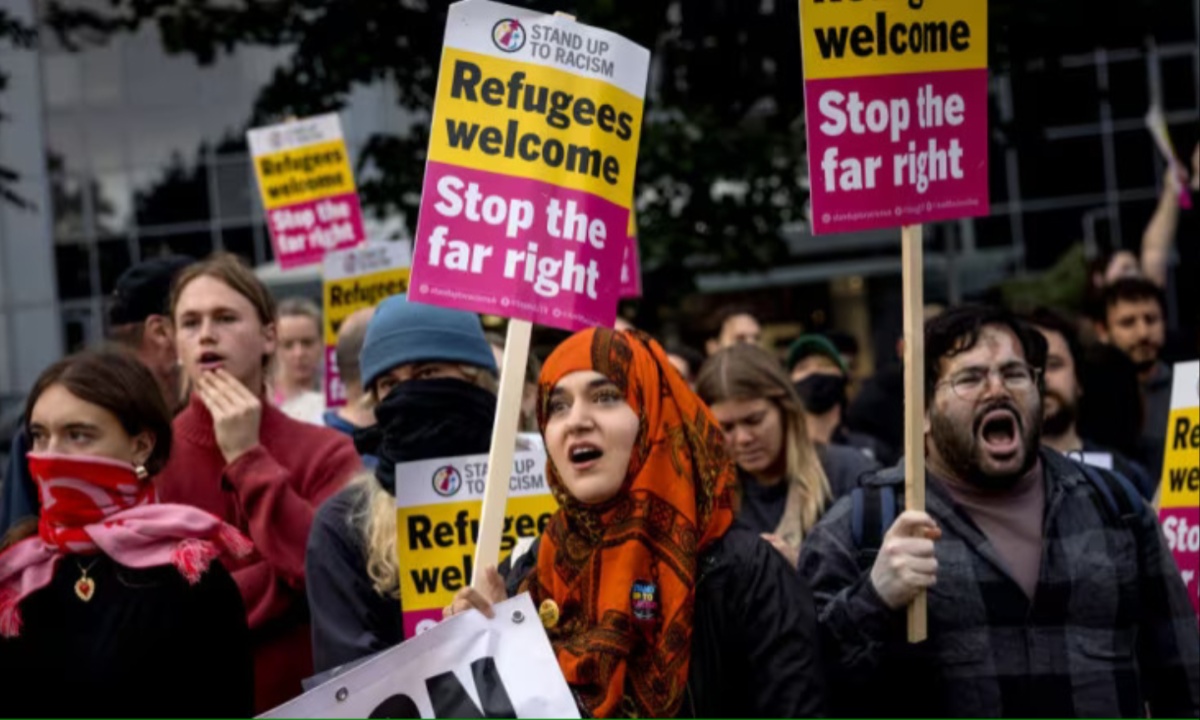In response to fears of a far-right uprising, thousands of anti-racism demonstrators gathered across England on Wednesday night. Major cities like Liverpool, Brighton, Bristol, Newcastle, and London saw significant rallies aimed at protecting locations rumored to be targets for violence, such as refugee charities and immigration lawyers.
Despite the concern that these protests would escalate into violent confrontations similar to those seen in previous days, the anti-racism groups encountered minimal resistance, and most demonstrations ended peacefully within a few hours.
The Metropolitan Police Commissioner, Sir Mark Rowley, highlighted the effective policing and community solidarity that prevented the anticipated violence. He announced that police had conducted dawn raids and arrested several individuals involved in previous unrest, noting that a majority had criminal backgrounds.
Rowley stressed that these individuals, whom he described as “criminal thugs,” would face charges and likely imprisonment for their roles in the disturbances.
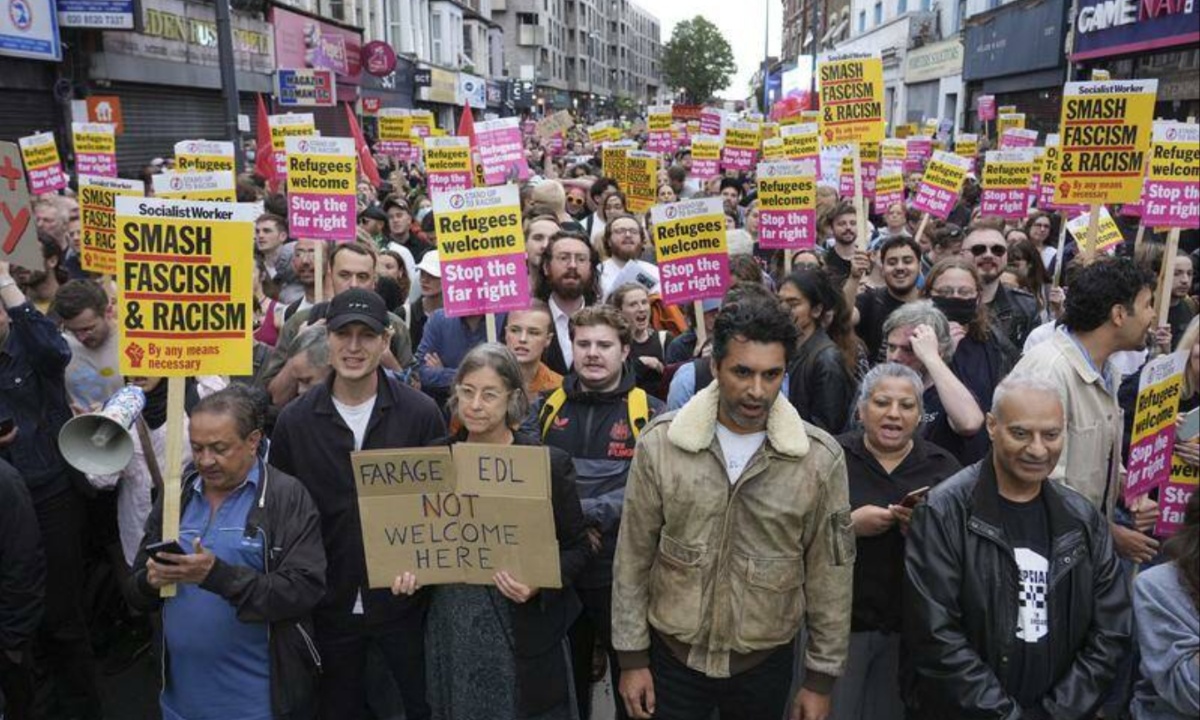
Anti-Racism Rallies Across England Thwart Far-Right Threats, Peacefully Defend Targeted Sites
The riots and violence that occurred over the past week were initially triggered by the tragic killing of three children in Southport on July 29. Misinformation spread online, falsely claiming that the attacker was a Muslim asylum seeker, which fueled a wave of far-right violence.
This unrest included attacks on hotels housing asylum seekers, some of which were set on fire. The rumor of further far-right action on Wednesday night led to widespread police mobilization and anti-racism demonstrations.
In Brighton, a city known for its strong anti-fascist stance, the pro-immigration demonstrations were met with little opposition. Police managed to contain a small group of far-right protesters, while around 2,000 counter-protesters chanted slogans affirming the city’s anti-fascist values.
By the end of the night, the situation remained calm, with no arrests reported, illustrating the community’s ability to stand together against far-right threats.
Across the country, the anticipated violence largely failed to materialize. Despite businesses closing early and heightened police presence, the evening passed relatively peacefully, with only a few isolated incidents of minor disorder.
In Liverpool, where recent unrest had been severe, a strong community response led to a peaceful night of protests, with no significant disruptions reported. The collective efforts of anti-racism groups, supported by robust policing, played a crucial role in averting further violence and maintaining public order.


